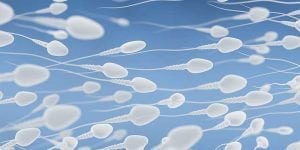Worldwide, about 15 percent of all couples are affected by infertility, with the male partner being the cause 20-30 percent of the time. But now there is new hope for men suffering from sterility: Chinese researchers were able to impregnate mice by using artificial sperm.
Healthy offspring thanks to sperm grown from stem cells
Much like the research done relating to spermbots, this new research may prove to help men with infertility issues. The research team headed by Dr. Xiao-Yang Zhao from the Chinese Academy of Sciences was able to create sperm from stem cells for the first time. In a study that was conducted with mice, the scientists transformed embryonic stem cells of male rodents into sperm, which they then implanted into the mice’s testes. Subsequently, the sperm was used to fertilize 380 mice egg cells, from which 320 embryos developed that could then be implanted into female rodents. In the end, nine healthy baby mice were born and were later able to successfully reproduce. While Japanese scientists already succeeded in creating cells from the embryonic stem cells of mice in 2011, Dr. Zhao and his team consider their research more groundbreaking since they were able to ensure successful cell division (meiosis) of the extracted stem cells. During this process, the cells divide into new cells with fewer chromosomes, which ultimately form spermatids. Although these aren’t fully matured sperm cells because they are immotile, they can be used for fertilization. In their study, which was published in the journal Stem Cells, the scientists speak of “the first successful generation of spermatids that meets the gold standard.” Dr. Zhao and his research team treated the stem cells with male sex hormones and growth factors that contained a variety of different hormones. With the immotile sperm produced in this way, egg cells from female mice could be fertilized. The resulting offspring, which consisted of nine healthy animals, survived the study period of 15 months.
What does this mean for humans?
Although the new research appears promising, it is doubtful whether it can be applied to humans. On the one hand, experiments conducted with mice can never be directly implemented with humans. On the other hand, experts point out that there are still flaws in the process. For instance, mice conceived in this way may have genetic defects or other problems that would not become apparent until later. In addition, the sperm development of mice and humans is different. Azim Surani, a developmental biologist at the University of Cambridge, notes that it is difficult to know whether the artificial spermatids would behave exactly like natural sperm. Other scientists point out that important steps in the meiosis process were omitted. Ethical aspects are also important: Researchers would have to ensure that the artificial sperm wasn’t changed with the objective of “designing” a genetically engineered child. These problems could be circumvented by using pluripotent stem cells (iPS), for example, because these reprogrammed cells are very similar to stem cells.
It will take some time and further research before it is clear whether this method will find an application in humans. Some scientists have already announced that they will repeat the experiment of Dr. Zhao to verify the results. For infertile men, hope remains that this novel method will allow them to have children of their own in the future.





